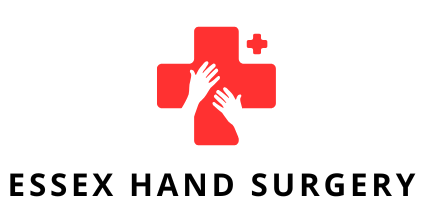The cost of hand surgery with insurance can vary significantly, and it’s difficult to give an exact figure without knowing specific details. Here’s a breakdown of factors that influence the cost and what to expect:
Factors Affecting the Cost:
- Type of Surgery: This is the most significant factor. Simple procedures like a trigger finger release will cost much less than complex surgeries such as reconstructive procedures, fracture repair, or joint replacement.
- Examples of estimated costs (without insurance, but can give you a baseline):
- Trigger Finger Release: $750 – $3,179
- Carpal Tunnel Release: $1,400 – $3,410
- Ganglion Cyst Excision: $1,500 – $3,179
- Dupuytren’s Contracture: $3,405
- Distal Radius Fracture (surgery + implant): $4,500 + implant costs (typically $1,500)
- Wrist Arthroscopy: $4,967 – $11,800
- Tendon Repair: $1,750 – $12,800
- Wrist Fusion (Arthrodesis): $22,000 – $24,000
- Examples of estimated costs (without insurance, but can give you a baseline):
- Your Insurance Plan:
- Deductible: This is the amount you must pay out-of-pocket before your insurance starts covering costs.
- Copay: A fixed amount you pay for a specific service or visit (e.g., $50 for a specialist visit).
- Coinsurance: The percentage of the cost you’re responsible for after meeting your deductible (e.g., 20% coinsurance means your insurance pays 80% and you pay 20%).
- In-network vs. Out-of-network: Choosing an in-network surgeon and facility will significantly minimize your out-of-pocket expenses as they have negotiated rates with your insurance company.
- Pre-authorization: Many insurance plans require pre-authorization for hand surgery. Failing to get this could result in your claim being denied or significantly reduced.
- Healthcare Facility:
- Hospital vs. Ambulatory Surgical Center (ASC) vs. Office-based Procedure: Hospitals generally have higher facility fees than ASCs, and office-based procedures are often the least expensive.
- Surgeon’s Fees:
- Surgeon’s experience, expertise, and geographic location can influence their fees.
- Geographic Location: Healthcare costs vary by region and city.
- Additional Costs:
- Anesthesia fees: These are separate from the surgeon’s fee.
- Medical tests: X-rays, MRIs, etc., before and after surgery.
- Prescription medications: Pain relievers, antibiotics, etc.
- Physical or Occupational Therapy: Post-surgery rehabilitation is often crucial for recovery and adds to the overall cost.
- Implants/Supplies: The cost of plates, screws, or other implants if needed.
What to Do to Get an Estimate:
- Consult with your surgeon: Discuss the specific procedure, anticipated recovery, and ask for an estimated cost.
- Contact your insurance company:
- Provide them with the CPT (Current Procedural Terminology) codes for the planned surgery (your surgeon’s office can give you these).
- Ask about your deductible, copay, coinsurance, and if the procedure requires pre-authorization.
- Confirm if the surgeon and facility are in-network.
- Inquire about their fee schedule and how they determine reimbursement.
- Request a detailed cost estimate: Ask the surgeon’s office and the surgical facility for a comprehensive estimate that includes all anticipated costs (surgeon’s fee, anesthesia, facility fees, etc.).
Important Considerations:
- While hand surgery is often considered a reconstructive procedure and typically covered by health insurance, pre-certification is generally required.
- The actual services provided during surgery may vary from the initial quote due to unforeseen medical necessities.
- Patients often experience financial hardship even with insurance due to deductibles and copays. Don’t hesitate to discuss cost concerns with your surgeon’s office.
In summary, expect your out-of-pocket cost for hand surgery with insurance to be a combination of your deductible, copay, and coinsurance. The total amount will depend on the complexity of the surgery, your specific insurance plan, and where the surgery is performed.

